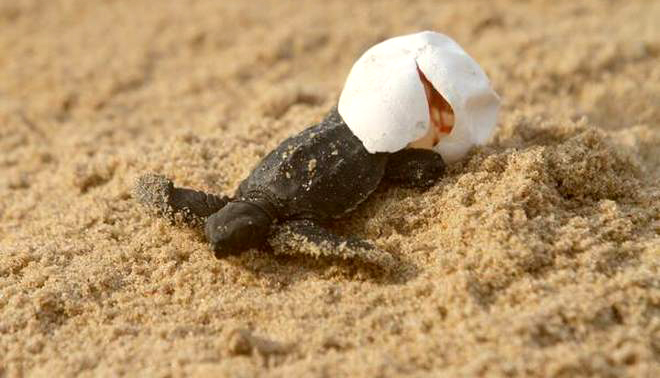Ganjam: Mass nesting of rare Olive Ridley turtles on Rushikulya sea mouth near Purunabandha village in this district was affected by a sudden change in climatic conditions, forest officials said Tuesday.
The Rushikulya river mouth is considered the second-biggest rookery in India after Gahirmatha marine sanctuary in Kendrapara district. Lakhs of endangered Olive Ridley turtles flock to the Rushikulya river mouth every year for their annual mass nesting in Ganjam district.
These endangered species throng the place every year from the third week of February to the first week of March for nesting. Odisha is the largest mass nesting site for Oliver Ridleys in the world.
Over 500 turtles had laid eggs after southern wind blew February 5, DFO Amlan Kumar Nayak said. However, a change in climatic conditions has hindered their mass nesting, he stated.
Nayak, however, hoped that the climatic conditions will soon change and thousands of turtles will soon start laying eggs on the beach.
Meanwhile, the Forest department has erected plastic fences on the beach on a stretch of 1.5 km till Podampeta to protect the marine species from the wrath of the wild animals.
The fences are of 2-metre height which will help the turtles from being killed by wild animals, he said. Notably, over 500 turtles had laid eggs on the beach late Saturday night. The eggs normally take 45 days to hatch.
Tiny hatchlings come out and make their way to the sea upon hatching. On being informed, DFO Nayak and forest ranger Siddharth Shankar Sahu rushed to the beach and took stock of the mass nesting.
The turtles were found to have laid eggs from Podampeta to Siddhant Nagar which is to the north of the beach. Moreover, various steps are being taken to ensure the security of the rare turtles.
PNN
